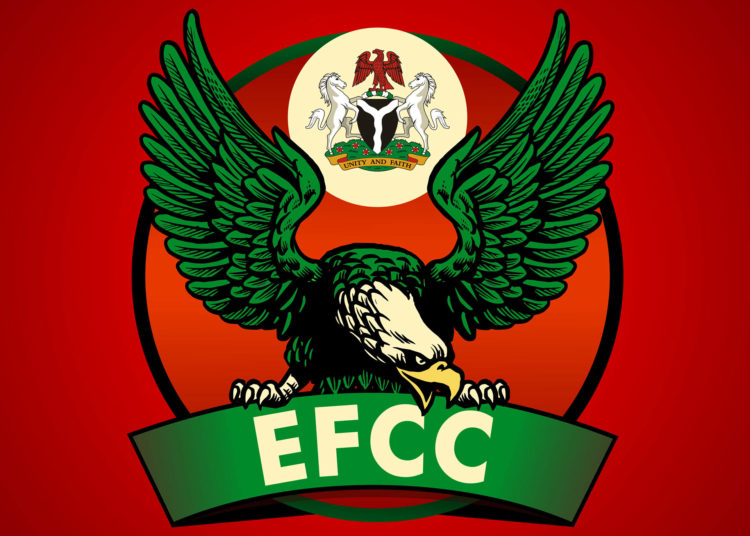The Head of the Cybercrime Section of the Economic and Financial Crimes Commission (EFCC), Whyte Dein, on Thursday, told the Federal High Court in Lagos that his team was able to link controversial singer, Azeez Fashola, a.k.a Naira Marley, to a credit card fraud.
Dein, who is also a Chief Detective Officer with the EFCC, was testifying in the ongoing trial of Naira Marley over allegations of alleged cybercrime offences.
The musician is standing trial on an 11-count charge of conspiracy, possession of counterfeit credit cards and fraud brought against him by the anti-graft agency.
According to the EFCC, Naira Marley committed the offences on different dates between November 26, 2018, and December 11, 2018, as well as May 10, 2019.
The EFCC alleged that some of the credit cards discovered in the defendant’s residence bore the fictitious names Nicole Louise Malyon and Timea Fedorne Tatar.
When he was arraigned on May 20, 2019, he pleaded not guilty and was granted bail by the court.
At the resumed hearing of the matter on Thursday, the witness told the trial judge, Justice Nicholas Oweibo, that his team’s investigation revealed various messages sent from the defendant’s iPhone to one Raze, who had asked for a credit card number and validity date.
Dein stated, “one of our findings from the forensic report shows the exchange of chat messages with several persons when the defendant sent credit card details, including card numbers and expiration dates. Visa Card details were one of those sent by the defendant to a certain person known on his contact list as Raze. This message sent Visa Card details to Raze, after which Raze replied to him that the card was not valid.
“We were able to establish through investigation the previous messages he sent with a wrong card that was indeed not valid. We then repeated the same process a second time which was valid.
“The defendant used malicious tools to disguise the identity and location of the user of the laptop when connected to the internet along with the presence of the Top Browser which acted as a single gateway to the dark net.
“This gave us reasonable grounds to suspect that the defendant had been engaging in fraudulent card activities or obtaining illegally. And this was established during a reply to our request for a Visa Western Union Card.
“The types of sites most commonly associated with the dark web are marketplaces where illicit goods such as narcotics, firearms, and stolen credit card numbers are bought and sold. The darkest corners are used to hire hitmen, engage in human trafficking, and exchange child pornography,” the witness stated.
The EFCC counsel, Rotimi Oyedepo, then asked Dein to offer his conclusion on the totality of the forensic evidence and Dein opined that all of the facts and more pointed at the defendant as a card fraudster.
But this move was opposed by defence counsel, Olalekan Ojo (SAN), who objected to the EFCC witness’ opinion.
Ojo, relying on statutory and case law, argued that only a court could conclude a case, based on the evidence.
Responding, Oyedepo distinguished the findings of an investigating officer from that of a court, because according to him, the conclusion of a court is what is binding on all parties.
Justice Oweibo, thereafter, adjourned the matter till July 13 and 15 for ruling on the point and continuation of the trial.
Earlier, EFCC tendered statements Naira Marley made on May 10, 13, 14 and 15, 2019 while he was in its custody. The court admitted the same in evidence and marked them as exhibits G, G1, G2 and G4 respectively.
The court also admitted in evidence Visa Western Union’s response to the EFCC’s enquiry. The same was marked as Exhibit H.





